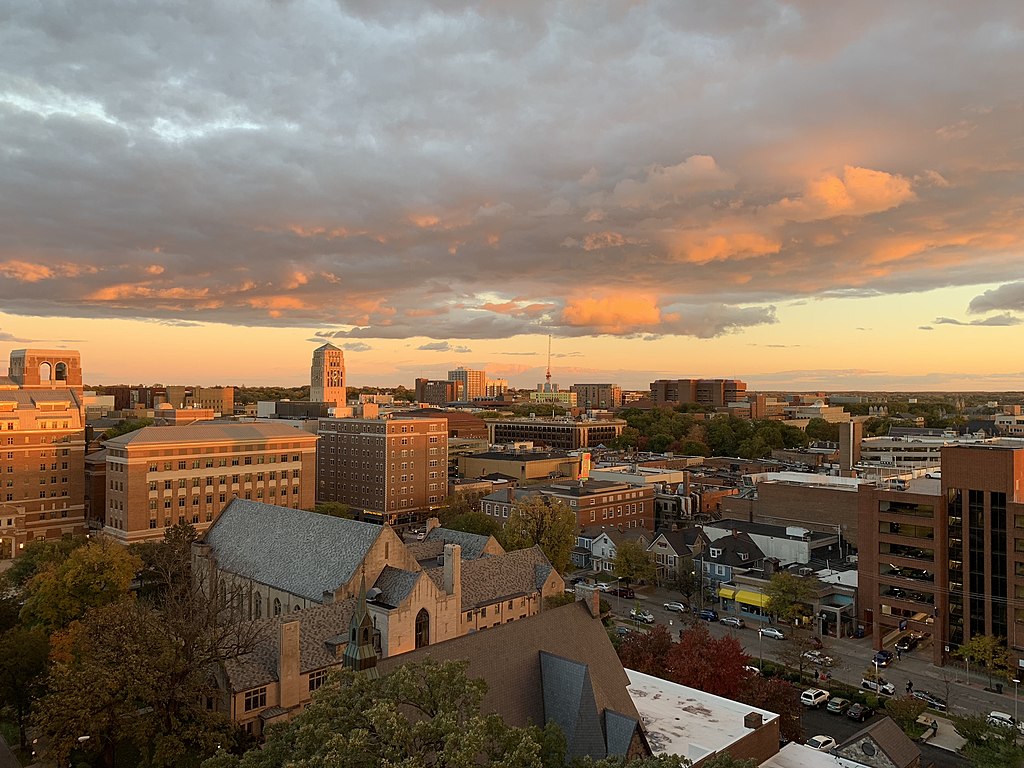On September 21, the City Council of Ann Arbor, Michigan voted unanimously to decriminalize naturally occurring psychedelics. It becomes the fourth US city in two years to adopt such a reform. However, lawmakers added a late amendment to the resolution that alters its scope.
The resolution applies to substances including psilocybin mushrooms, ayahuasca, peyote, San Pedro cacti and iboga—all naturally occurring psychedelics that are classified as Schedule I narcotics under federal law. The city has now determined that their cultivation, possession, use or purchase will be the “lowest law enforcement priority” for police.
Commercial manufacture and sales, driving under the influence, “public disturbance” and distribution in schools will remain firmly illegal.
The city also calls upon the Washtenaw County prosecutor to stop charging people for offenses related to use of these drugs. The resolution cites clinical research, anecdotal evidence, and historical and traditional use of psychedelics for medicinal, therapeutic and spiritual purposes.
The sponsors of the resolution, local group Decriminalize Nature Ann Arbor, feel that while the reform is unlikely to have a large impact on criminal justice in the city, it still helps to push a necessary conversation about drugs. “We think this move is more symbolic of what is already happening in Ann Arbor,” Myc Williams, the group’s communications director, told Filter. “According to the chief of police there have only been six arrests in Ann Arbor since 2017, and none in 2020.”
Williams suggested that the successful vote allows groups like his to move forward with public education around psychedelics, so people can talk about how to use them safely. “[We are] working closely with Michigan Psychedelic Society and Michigan DanceSafe to provide educational materials and resources,” he said, “as well as creating a ‘community container,’ to not only address education and safe consumption, but also ensure that communities that stand to benefit most and are hardest to reach have equity in access, provide spaces for integration, and continue the conversation.”
Ann Arbor follows Denver, Oakland, and Santa Cruz, each of which has implemented a similar form of psychedelic decriminalization. But there is a notable difference in this case. City lawmakers amended the original proposal before the vote to remove a key phrase: “City funds or resources shall not be used in any investigation, detention, arrest, or prosecution arising out of alleged violations of state and federal law regarding the use of Entheogenic Plants.”
“Removing funding was something we included in the original resolution, but after conversations with the city attorney, the sponsoring council members decided to remove it,” Williams explained. “Effectively it makes our resolution not a true decriminalization, which was a disappointment to our team.”
“Many in our movement view this amendment to the original resolution problematic,” he continued. “It is true without the changes we would likely not have gotten a unanimous vote in our favor, but we believe we could’ve still won.”
This all means that Ann Arbor police can still exercise discretion to make arrests for these drugs, if they choose. Ironically, councilmembers’ reticence on this issue may just be making the cops’ jobs harder: Williams said that during the council meeting, the Ann Arbor police chief actually complained that with the new amendment, police would have the burden of deciding whether or not to make arrests.
Decriminalize Nature Ann Arbor is hoping to reinsert the original language after the November election, when there are expected to be seat changes on the City Council. “Not only will this make our resolution a more effective citywide decriminalization,” said Williams, “but we believe it will address the concerns of the chief of police in officers having a call to make.”
Photograph of Ann Arbor by JuwanGOAT via WikiMedia Commons/Creative Commons 4.0.





Show Comments